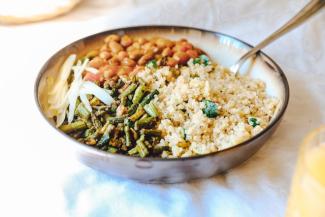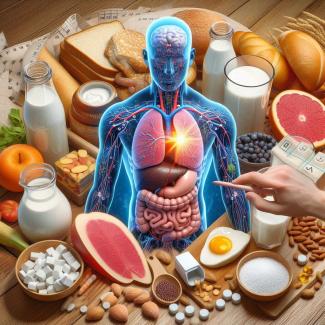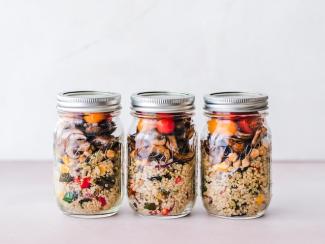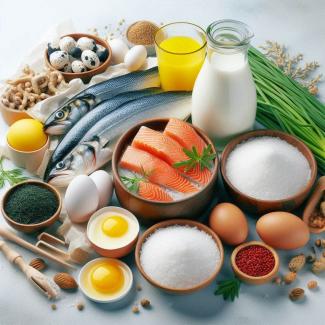
Quinoa (pronounced "keen-wah") is a plant and food grain that originates from South America, primarily the Andean region. It is one of those foods that have gained worldwide popularity due to its numerous health benefits. Quinoa is often described as a "superfood" because of its high nutritional value. Here's a detailed description of quinoa, how to use it, and its benefits:
Quinoa (Chenopodium quinoa):
- Quinoa is a plant that belongs to the amaranth family (Amaranthaceae).
- It has grains that are small, round, and similar in appearance to grains, but it is not a true cereal as it does not belong to the grass family (Poaceae), where grains like wheat, rice, and barley are classified.
- Quinoa originates from the Andes in South America and has been cultivated there for thousands of years. Ancient civilizations, such as the Incas, valued it as a staple food.
How to Use Quinoa: You can use quinoa in various ways. Here are some methods to incorporate it into your diet:
- As a Side Dish: Quinoa can be used as a healthy alternative to rice or pasta. It is cooked similar to rice, using a 2:1 water-to-quinoa ratio, and can be seasoned with various herbs and spices.
- In Salads: Quinoa can be added to salads to provide extra texture, nutrition, and flavor. It is commonly used as a cold side dish in salads.
- In Soups and Stews: Quinoa can be stirred into soups and stews to increase the nutritional content and make the meal more satisfying.
- For Breakfast: Quinoa can be prepared as a breakfast dish by cooking it in milk or a plant-based milk alternative, then adding fruits, nuts, and honey.
- Veggie Burgers: Quinoa is an excellent ingredient for making vegan burgers, patties, and other dishes that require binding and texture.
- Baking: Quinoa flour can be used in baking to increase the nutritional value of bread, cookies, and other baked goods.
Benefits of Quinoa: Quinoa is considered a superfood due to several key benefits:
- High Nutritional Value: Quinoa is rich in protein, dietary fiber, vitamins (e.g., vitamin B6, B2, B1, B3, and vitamin E), and minerals (e.g., magnesium, phosphorus, iron).
- Rich in Protein: Quinoa contains all essential amino acids, making it an excellent source of plant-based protein. This makes it a great choice for vegetarians and vegans.
- Gluten-Free: Quinoa is naturally gluten-free, making it suitable for those with celiac disease or those avoiding gluten in their diet.
- Low Glycemic Index: Quinoa has a low glycemic index, meaning it doesn't cause rapid spikes in blood sugar levels, making it suitable for individuals with diabetes.
- Heart-Healthy: Due to its high fiber and healthy fat content, quinoa can contribute to reducing the risk of heart diseases.
- Rich in Antioxidants: Quinoa contains antioxidants that help protect cells from damage caused by free radicals.
- Easy to Digest: Quinoa is easily digestible and suitable for people with sensitive digestive systems.
- High Nutrient Density: Quinoa is a good source of folate, potassium, and other essential nutrients.
Quinoa is a versatile, nutrient-dense ingredient that can enhance a wide range of dishes. It's an excellent choice for those looking to improve their diet, and it offers various health benefits. By incorporating quinoa into your meals, you can enjoy its nutritional advantages and its role as a superfood.






